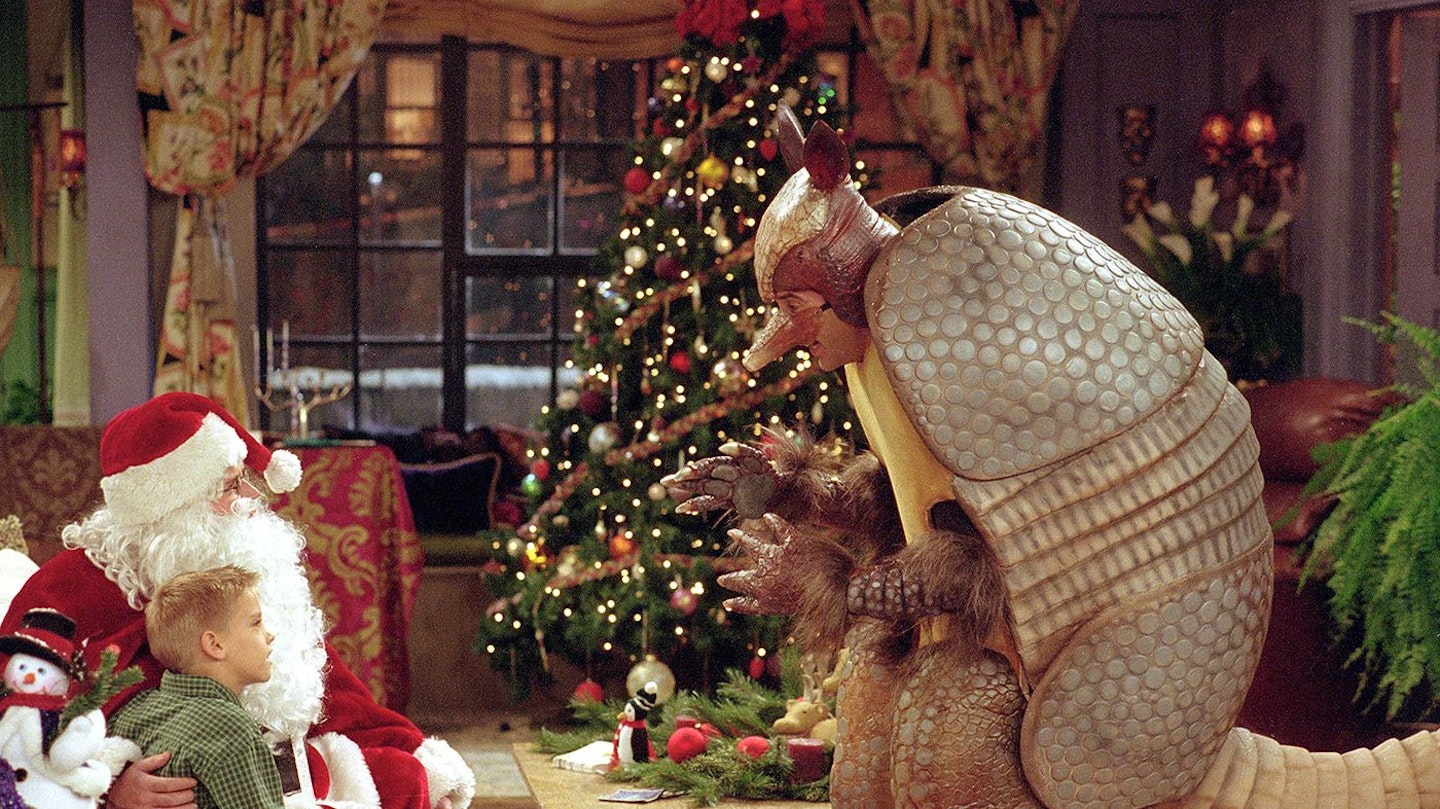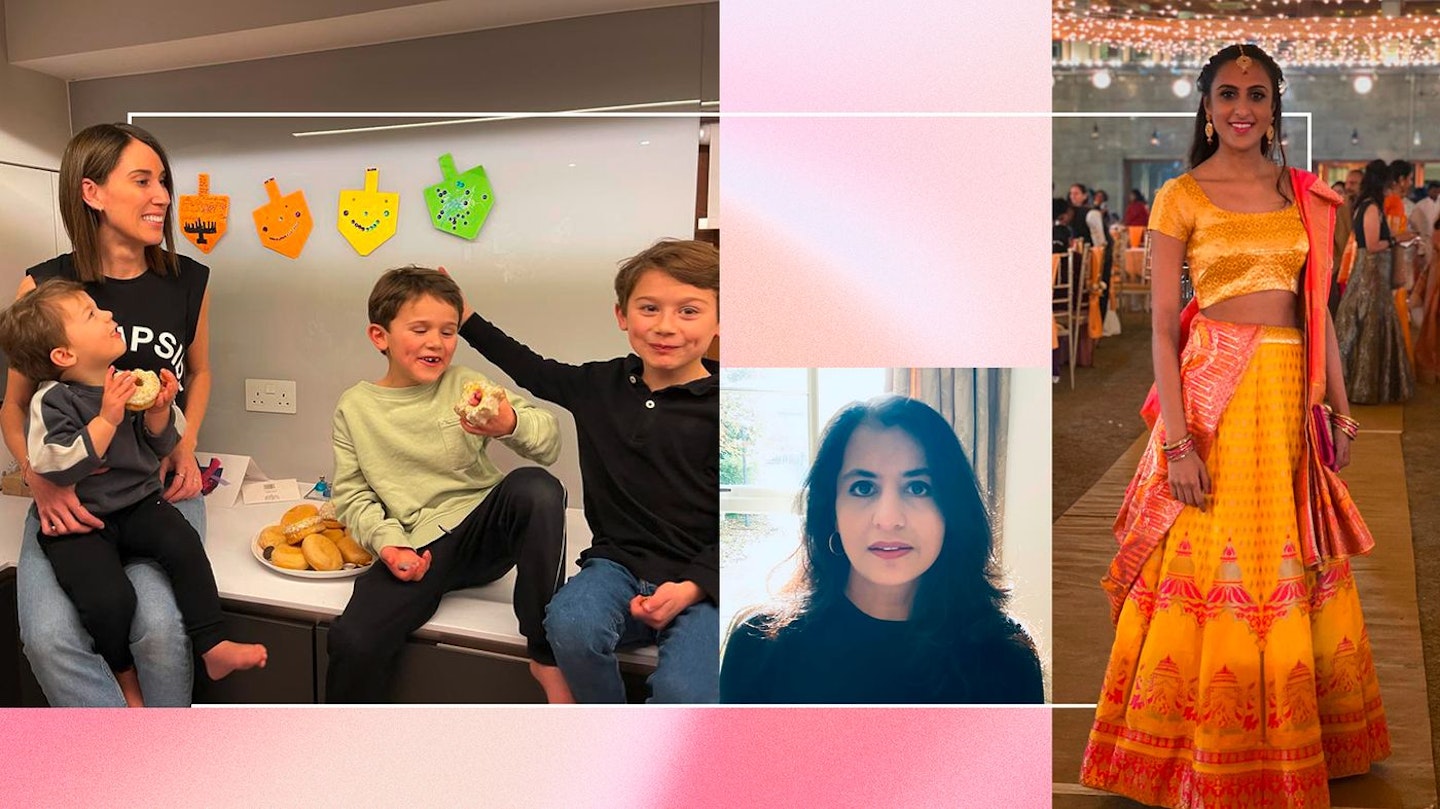A woman who didn’t know she was pregnant and gave birth just hours after a doctor said she had trapped wind has made nationwide headlines this morning.
Charlotte Wheeler-Smith had her regular periods and had taken pregnancy tests that had come back negative, she said when she spoke to Good Morning Britain. Londoner Charlotte lives in Amsterdam and had not long come back from a 7km run when she started suffering from stomach cramps.
The story has been widely shared across the internet and social media – but in a time when our news cycle is crammed full, why has this story become such big news? Probably because we’re strangely obsessed with stories about women who discover they’re pregnant either very late on, or during childbirth. There are sub-categories of course. ‘This woman thought she was menopausal… She was actually pregnant!’ or ‘Sarah went to the toilet… and came out a mum!’ or 'Size 12 jeans and nine months pregnant!'
But why? Many of us, as we’ve exchanged stories with friends about friends-of-friends or girls in school, or our towns, who this happened to, probably have never given it a second thought. In lots of ways it’s an extraordinary thing, so maybe it’s just that. For those of us who have seen a picture of a pregnant woman, it’s kind of hard to wrap our heads around the idea. As we either have friends who are pregnant, or become pregnant ourselves (with the aches, pains and everything else it entails) it can seem almost unbelievable.
But does it go deeper than that?
Speaking alongside her little girl, Evelyn, Charlotte said: ‘I was feeling uncomfortable on the Sunday morning, on Father’s Day. I actually thought I had period pains, so I took some paracetamol but then my boyfriend was a bit worried and called the GP. And the GP came and examined me and said I had some trapped wind and IBS and then an hour later Evelyn arrived.’
Adding that her boyfriend had gone out for a run, she said: ‘I thought, “I maybe I need to go to the bathroom because I have this trapped wind” and then an umbilical cord came out and that’s when I realized something was happening. I called Dominic, and he arrived and we then delivered her in our hallway.’
Charlotte went on: ‘Instinct just took over and I had to listen to my body… She was very, very poorly when she was born, an umbilical prolapse is pretty cataphoric even in a medical setting. But we resuscitated her and then the ambulance arrived, and we received the best care here in the Netherlands.’
The baby was helped to breath and she was transferred to ICU and given cooling therapy to help combat the oxygen damage.
Talking about her mum and dad finding out they were grandparents, she added: ‘My parents were both out on a walk, because it was Father’s Day, and my mum actually fell over in a cow pat because she was so shocked.’

It’s an extraordinary story for sure, but not the first to make headlines. In lots of ways, in all honesty, the story probably appeals to many women in the vein of a scary story. For many of us (and I know, that for some women an unexpected child would be a true gift) the idea of finding out you're pregnant at such a late stage that any agency was taken out of your hands is the nightmare old-school sex education was built on. For others, just the fact, even if that baby was wanted, you’ve missed out on six to nine months of preparing your home and life for a child is enough to bring out the cold sweats.
A colleague suggested she thinks the stories are the opposite - almost a beacon of hope for lots of women, because, if someone can give birth without hardly realising it, or go months without even a twinge, then how hard can pregnancy and birth be? Don’t answer that one…
There's probably also part of us that always clicks or flicks the page looking for clues. Either to suss out if someone reeeeeally didn't know. Or to just, yknow, keep an eye out for telltale signs...
Counselling Directory member Lucy Fullersays: ‘Most women would consider it impossible to have a baby and not know that you were pregnant or to find out very late on in the pregnancy. And in the same way that people are drawn to sensational stories of any sort, they are fascinated by stories of unusual or implausible situations because it is like being taken on a rollercoaster ride of emotions. Disbelief shock, horror, fear that the same thing could possibly happen to us. The rise of sensations within us in reaction to such stories makes us feel alive and sit on the edge of our seats.’
I think there’s also an element that ‘shock and horror’ is tied to our kind of wondrous disbelief about ‘the magic of birth’… one which personally I think could do with some debunking. Because debunking means science. And time and time again, when we talk about women and birth, we talk about ‘nature’ airily in exactly the opposite way we talk about pretty much any other medical dilemma.
And while we’re on research into things that happen to women’s bodies and not men’s (and are therefore scandalously under-researched and underfunded) I’m no scientist, but perhaps we need to look into whether these ‘pregnancy tests’ are all they’re cracked up to be… We talk a lot about ‘false negatives’ around the early days of pregnancy. Do you think we’d be happy talking about ‘false negatives’ when you x-rayed a broken leg? Ok, so it doesn’t LOOK broken, but we would recommend continuing as you are and maybe testing it again in a few weeks...
Until we’re clearer about pregnancy and childbirth – and less interested in the ‘miracle of life’ or whatever else you’ve heard it called – these stories will probably continue to come about… and float around in the back of women’s brains too.
Watch Good Morning Britain weekdays from 6am on ITV.
READ MORE: Are You At Risk From The Gender Health Gap?
READ MORE: Mille Mackintosh: 'I've Struggled With My Body Image Post-Pregnancy'
Graziau2019s 10 Best Stories You Might Have Missed
 1 of 10
1 of 10Saying Shia LaBeouf Was 'Always A Bit Weird' Isn't Helping Anyone
 2 of 10
2 of 10All The Friends Christmas Episodes, Ranked
 3 of 10
3 of 10People Have A Right To Be Annoyed At All The Love Islanders Who Have Been On Holiday In Dubai
 4 of 10
4 of 10Victoria Beckham's Complete Hair Evolution
 5 of 10
5 of 10Ariana Grande's Engagement Nails Prove THIS Is The Manicure To Go For If You Think A Proposal Is On The Cards This Christmas
 6 of 10
6 of 10How Women Of Different Faiths Have Celebrated This Year
 7 of 10
7 of 10All Of The Money Spent, Food Wasted And Plans Disrupted Could've Been Avoided If The Government Handled The Coronavirus Crisis Properly
 8 of 10
8 of 10Renting Clothes Is More Popular Than Ever But Would You Really Ever Stop Buying Outfits?
 9 of 10
9 of 10Searches For Pyjamas Are Higher Than Ever, So Here's The Best Pairs To Buy Before They Sell Out
 10 of 10
10 of 10